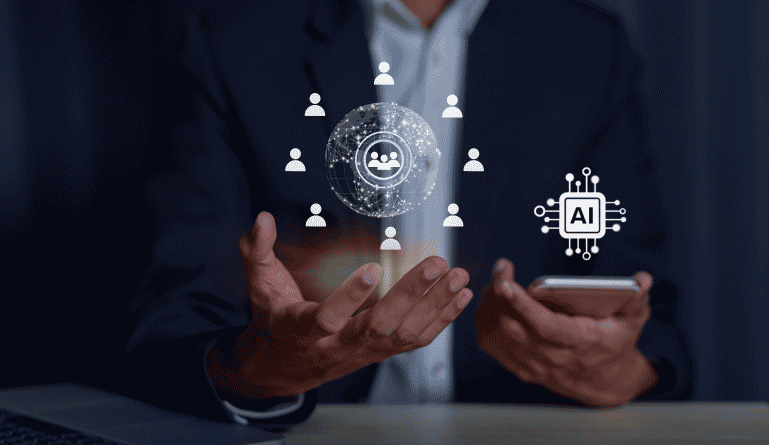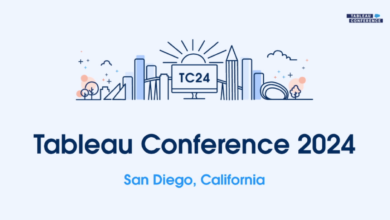AI in HR: Streamlining Processes

AI in HR, or artificial intelligence in human resources, refers to integrating advanced data analysis technologies like machine learning, natural language processing, and big data analytics into various HR functions to streamline processes, enhance decision-making, and improve overall efficiency.
At its core, AI in HR aims to automate repetitive tasks like resume screening, candidate sourcing, and employee onboarding. This frees you up to focus on more strategic initiatives. Another benefit of AI is that it lets you analyze vast amounts of data to identify patterns and trends. You can make data-driven decisions regarding talent acquisition, employee engagement, and performance management.
Therefore, the meaning of AI in HR has both tactical and strategic aspects, depending on how you implement the technology. Let us look at a few notable use cases across the HR function.
How AI Can Transform Recruitment
AI could revolutionize recruitment processes by introducing efficiency, objectivity, and scalability.
Through machine learning algorithms, AI-powered applicant tracking systems (ATS) can analyze resumes, identify relevant keywords, and rank candidates based on their qualifications, skills, and experience. This automated screening process accelerates the initial candidate review process and minimizes bias by focusing solely on job-related criteria – thereby ensuring a fair and merit-based evaluation.
Moreover, the AI can continuously learn from past hiring decisions and candidate interactions, refining its screening criteria to match your organization’s evolving needs and preferences.
At the sourcing end of the spectrum, it can scour various online platforms and databases to identify potential candidates who match the desired criteria, even passive candidates who may not be actively seeking employment. By analyzing data from professional networking sites, job boards, and social media platforms, AI in HR can provide recruiters with a comprehensive pool of qualified candidates. This expands your talent pipeline and reduces the time-to-fill positions.
Using Artificial Intelligence to Engage Employees
Imagine stepping into an office where every aspect of your work environment, from your training modules to your team interactions, feels tailor-made just for you. This is the promise AI holds for employee engagement.
Through sentiment analysis and natural language processing, AI platforms can decode the collective mood of your workforce, allowing you to gauge morale in real time and address concerns promptly.
AI also finds a place in workplace chatbots. These tools serve as virtual assistants, available around the clock to address your employees’ inquiries and concerns. The bots can handle routine HR tasks, such as submitting leave requests, accessing company policies, and providing emotional support during challenging times.
Automating these admin processes frees up valuable time for your HR team to focus on strategic initiatives that drive employee engagement and retention. Over time, AI algorithms can analyze employee feedback and engagement data to identify patterns and trends, allowing you to address issues before they escalate proactively.
Therefore, you can foster a sense of belonging and purpose among your workforce through targeted interventions and personalized communication.
The Role of AI in L&D
AI emerges as a powerful ally in the challenging landscape of learning and development (L&D). It reshapes traditional training paradigms and ushers in a new era of personalized learning experiences.
Thanks to AI, every employee can have a virtual mentor capable of understanding their unique learning style, preferences, and areas for improvement. Through sophisticated algorithms, AI platforms can analyze vast amounts of data on individual performance, skill gaps, and learning behaviors, enabling you to tailor training programs to meet the specific needs of each employee.
You foster continuous growth and skill development across your organization by delivering bite-sized, interactive modules tailored to your employees’ proficiency levels and learning objectives.
AI-driven adaptive learning systems can also employ machine learning algorithms to adjust the pace and content of training materials dynamically. This approach ensures your employees remain engaged and motivated throughout their learning journey.
Finally, AI-powered assessment tools can provide instant feedback and performance insights. You can track the effectiveness of your training programs in real time and make data-driven adjustments as needed.
How to Use AI for Performance Management
Imagine a world where performance reviews are not dreaded but embraced as opportunities for growth and recognition. This vision becomes a reality with the integration of AI into performance management systems
AI changes traditional performance evaluations by providing real-time insights and actionable feedback tailored to each employee’s strengths and improvement areas. Through advanced analytics and machine learning algorithms, it can analyze a myriad of data points – including productivity metrics, project outcomes, and peer feedback – to paint a comprehensive picture of employee performance.
With this wealth of information, you can proactively address performance issues and optimize your team’s effectiveness.
Artificial intelligence also facilitates predictive analytics. AI in HR can forecast future performance trends and identify high-potential employees, allowing you to allocate resources to maximize your team’s impact strategically.
The Ethical Considerations Surrounding AI in HR
As you delve into AI in HR, navigating the ethical landscape with a keen eye and a principled approach is imperative.
One of the foremost concerns revolves around algorithmic bias, where AI systems inadvertently perpetuate or amplify existing biases in historical data. This can lead to discriminatory hiring, promotion, and performance evaluation outcomes.
To mitigate this risk, you must rigorously audit your AI algorithms, ensuring they are trained on diverse and representative datasets and regularly monitored for fairness and equity. Additionally, transparent communication with candidates and employees about using AI in HR processes is essential to build trust and mitigate privacy and data security concerns.
The ethical implications of AI extend beyond individual interactions to broader societal impacts, such as job displacement and economic inequality.
As AI automates routine tasks and augments decision-making processes, it can reshape the labor market and exacerbate existing disparities. To address these concerns, organizations must invest in reskilling and upskilling initiatives to empower employees to adapt to the changing nature of work.
Moreover, thoughtful consideration must be given to the ethical implications of AI-driven HR policies, such as performance monitoring and predictive analytics, to ensure they uphold employee rights and dignity. By adopting a human-centric approach to AI in HR, grounded in ethical principles and guided by a commitment to social responsibility, you can harness AI’s transformative potential while safeguarding against unintended consequences.
Practical Tips for Successful AI Implementation
Embarking on the AI implementation journey can be exciting and daunting, but with the right approach, you can set yourself up for success.
First, it’s crucial to clearly define your objectives and identify specific pain points or opportunities where AI can make a tangible difference. By aligning AI initiatives with your organizational goals, you ensure you invest in solutions that deliver measurable value. Next, cultivate a culture of collaboration and cross-functional teamwork. Involve stakeholders from various departments – including HR, IT, and business operations – in decision-making.
Investing in robust data infrastructure and governance processes is paramount to the success of AI implementation. You must ensure that you have access to high-quality data that is clean, accurate, and relevant to train your AI algorithms effectively. Implement rigorous data privacy and security measures to safeguard sensitive employee information and maintain compliance with regulatory requirements.
It’s essential to approach AI implementation as an iterative rather than a one-time project. Start small by piloting AI solutions in specific use cases or departments, gathering feedback, and refining your approach based on real-world results. This agile methodology allows you to learn and adapt quickly, accelerating innovation while minimizing risks and costs.
38% of HR leaders have also explored or implemented AI solutions. By embracing agility, learning, and innovation, you can position your organization for long-term success in harnessing AI’s transformative potential.



